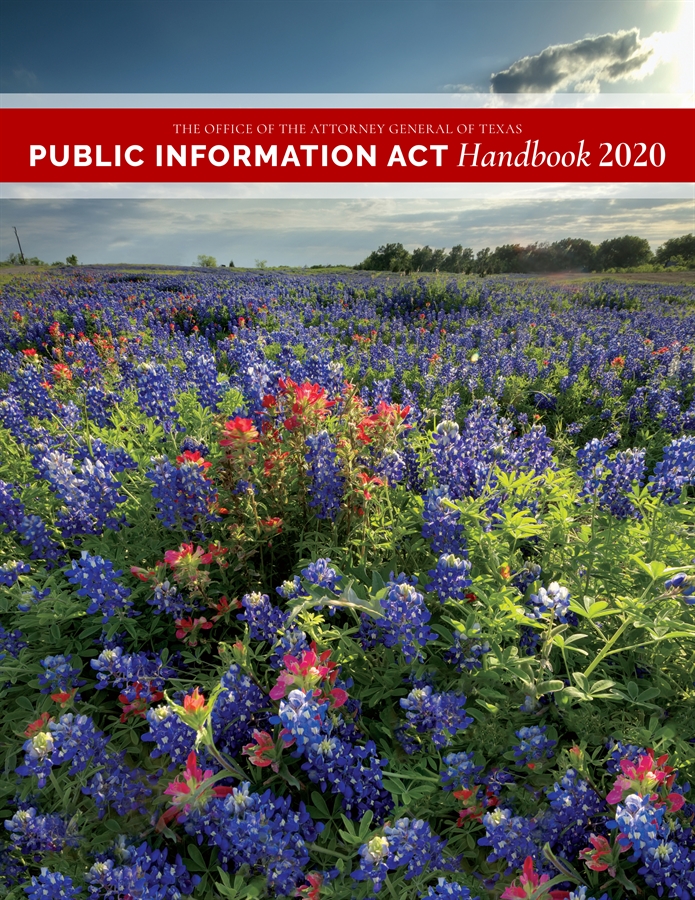Open Records/Texas Public Information Act
The Texas Public Information Act
Making A Request Under The TPIA: The Texas Public Information Act (TPIA) gives the public the right to request access to government information. The Act is triggered when a person submits a written request to a governmental body. The request must ask for records or information already in existence. The Act does not require a governmental body to create new information, to do legal research, or to answer questions. In preparing a request, a person may want to ask the governmental body what information is available.
Charges To The Requestor: A person may ask to view the information, get copies of the information, or both. If a request is for copies of information, the governmental body may charge for the copies. If a request is only for an opportunity to inspect information, then usually the governmental body may not impose a charge on the requestor. However, under certain limited circumstances a governmental body may impose a charge for access to information. All charges imposed by a governmental body for copies or for access to information must comply with the rules prescribed by the Office of the Attorney General (OAG), unless another statute authorizes a governmental body to set its own charges.
Exceptions To The Act: Although the Act makes most government information available to the public, some exceptions exist. If an exception might apply and the governmental body wishes to withhold the information, the governmental body generally must, within 10 business days of receiving the open records request, refer the matter to the OAG for a ruling on whether an exception applies. If the OAG rules that an exception applies, the governmental body will not release the information. If a governmental body improperly fails to release information, the Act authorizes the requestor of the OAG to file a civil lawsuit to compel the governmental body to release the information.
Questions or Complaints: To reach the OAG's Open Government Hotline, call toll-free at 877-673-6839 (877-OPENTEX). Hotline staff can answer questions about the proper procedures for using and complying with the Act and can assist both governmental bodies and people requesting information from a governmental body. Hotline staff also review written complaints about alleged violations of the Act. If a complaint relates to charges, contact the OAG's Cost Hotline toll-free at 888-672-6787 (888-ORCOSTS) or forward a written complaint. Certain violations of the Act may involve possible criminal penalties. Those violations must be reported to the county attorney or criminal district attorney.
Federal Agencies: The Act does not apply to the federal government or to any of its departments or agencies. If you are seeking information from the federal government, the appropriate law is the federal Freedom of Information Act (FOIA). FOIA's rules and procedures are different from those of the TPIA.
Rights Of Requestors: All people who request public information have the right to:
Receive treatment equal to all other requestors.
Receive a statement of estimated charges in advance.
Choose whether to inspect the requested information, receive a copy of the information, or both.
Be notified when the governmental body ask the OAG for a ruling on whether the information may or must be withheld.
Be copied on the governmental body's written comments to the OAG stating the reason why the stated exceptions apply.
Lodge a complaint with the OAG regarding any improper charges for responding to a public information request.
Lodge a complaint with the OAG or the county attorney or criminal district attorney, as appropriate, regarding any alleged violation of the Act.
Responsibilities Of Requestors: All people who request public information have the responsibility to:
Submit a written request according to the governmental body's reasonable procedures.
Include enough description and detail of the requested information so the governmental body can accurately identify and locate the requested items.
Cooperate with the governmental body's reasonable requests to clarify the type or amount of information requested.
Respond promptly in writing to all written communications from the governmental body (including any written estimate of charges).
Make a timely payment for all valid charges.
Keep all appointments for inspection of records or for pickup of copies.
Rights Of Governmental Bodies: All governmental bodies responding to information requests have the right to:
Establish reasonable procedures for inspecting and copying information.
Request and receive clarification of vague or overly broad requests.
Request an OAG ruling regarding whether any information may or must be withheld.
Receive timely payment for all copy charges or other charges.
Obtain payment of overdue balances exceeding $100 or obtain a security deposit before processing additional requests from the same requestor.
Request a bond, prepayment or deposit if estimated costs exceed $100 (or, if the governmental body has fewer than 16 employees, $50.
Responsibilities of Governmental Bodies: All governmental bodies responding to information requests have the responsibility to:
Treat all requestors equally.
Complete open records training as required by law.
Be informed of open records laws and educate employees on the requirements for those laws.
Inform the requestor of cost estimates and any changes in the estimates.
Confirm the requestor agrees to pay the costs before incurring the costs.
Provide requested information promptly.
Inform the requestor if the information will not be provided within 10 business days and give an estimated date on which it will be provided.
Cooperate with the requestor to schedule reasonable times for inspecting or copying information.
Follow attorney general rules on charges; do not overcharge on any items; do not bill for items that must be provided without charge.
Inform third parties if their proprietary information is being requested from the governmental body.
Inform the requestor when the OAG has been asked to rule on whether information may or must be withheld.
Copy the requestor on written comments submitted to the OAG stating the reasons why the stated exceptions apply.
Comply with any OAG ruling on whether an exception applies or file suit against the OAG within 30 days.
Respond in writing to all written communications from the OAG regarding complaints about violations of the Act.

